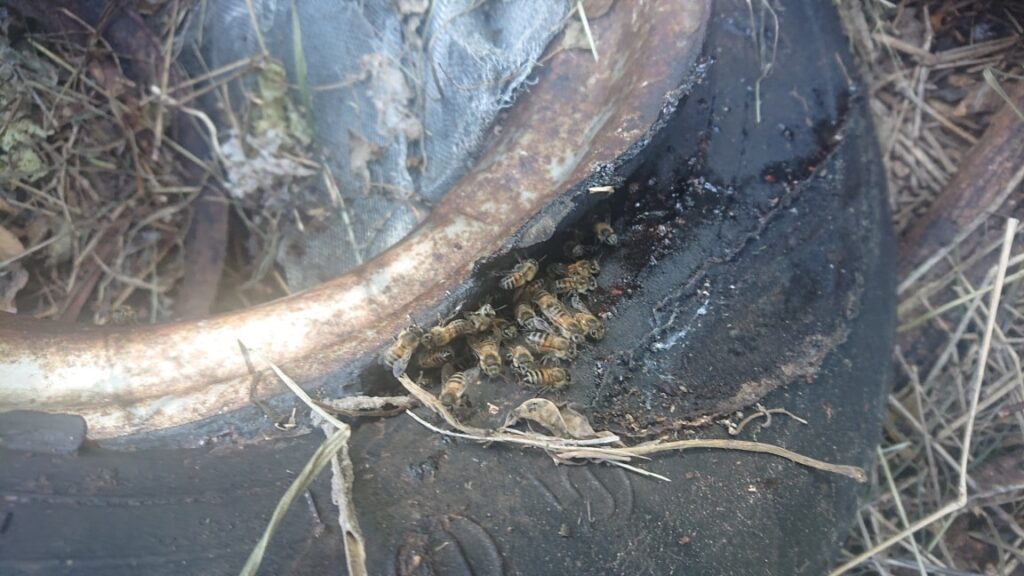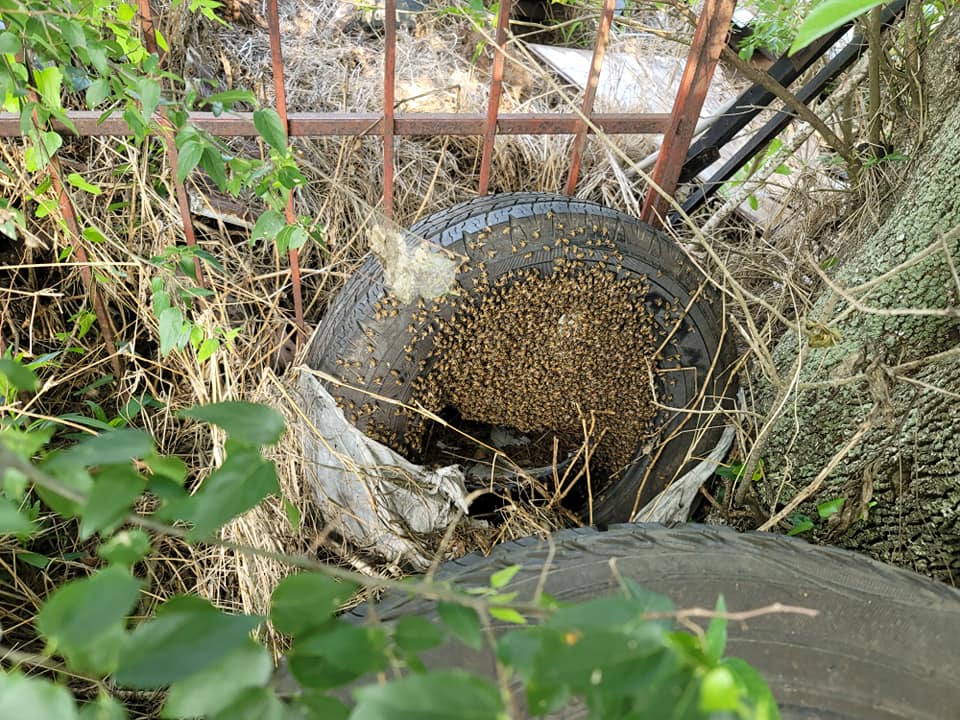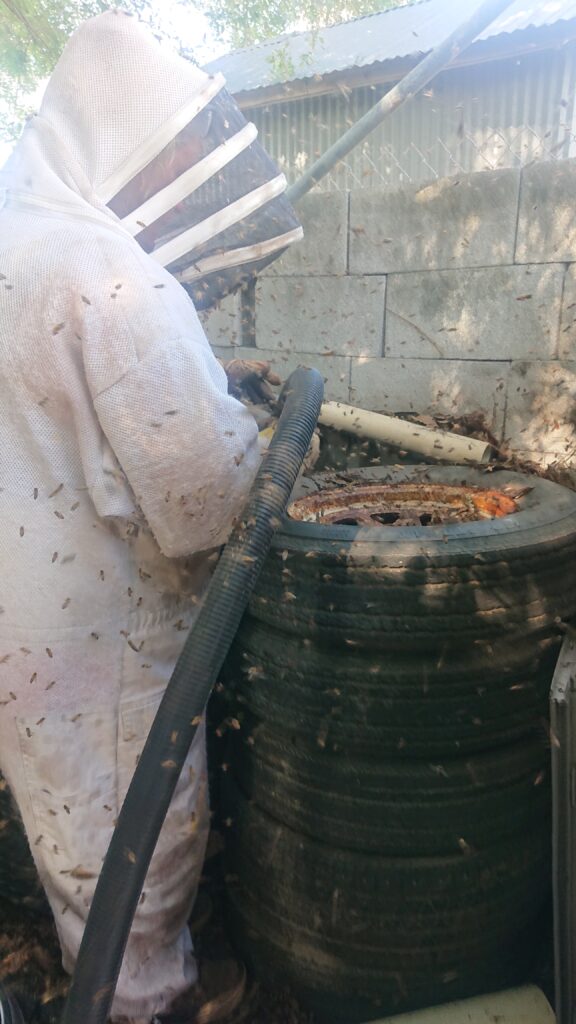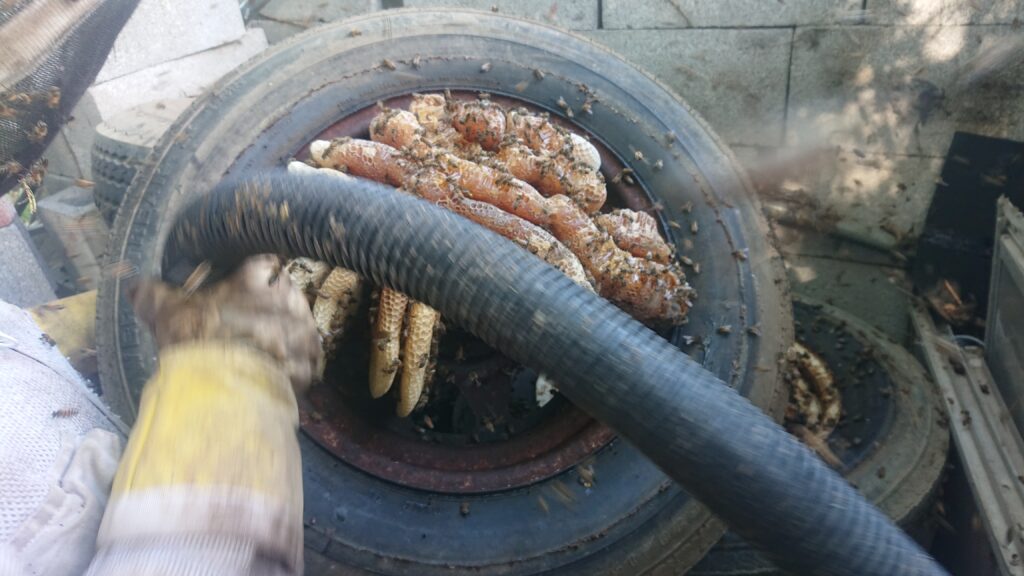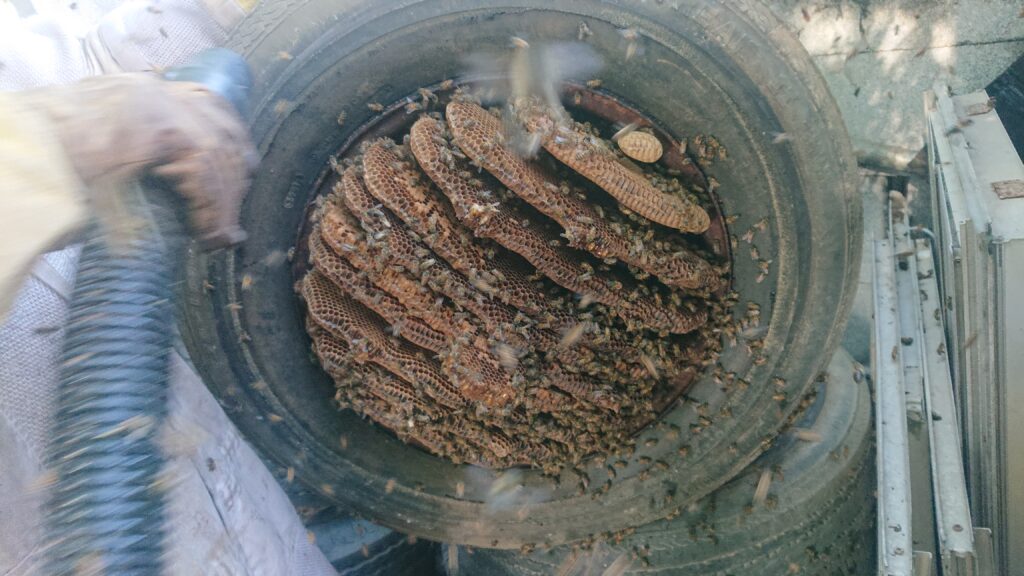
Bee Proofing for Homeowners: Tires
Being a homeowner in the Rio Grande Valley can present unique challenges. The warm, humid weather is great for insects; the most successful and invasive insect being the infamous Africanized Honeybee absolutely thrives in the RGV. One of the most unique aspects of Africanized bees over European honeybees is their propensity to nest in small locations and in high density. Nests do not need to be high off the ground in order to appeal to an Africanized bee, so tires (small and large) are all very attractive nesting sites.
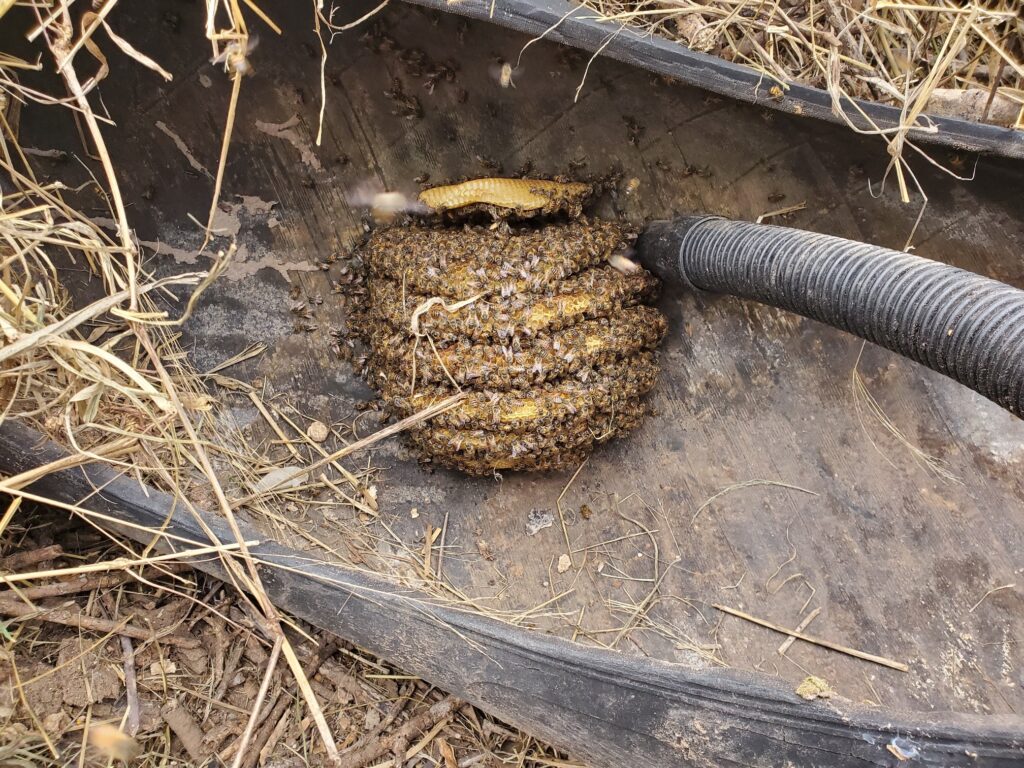
Unused tires are often left piled on overgrown edges of a property and can be very dangerous especially when hidden by foliage or other tires. Rims can help inhibit the bees and discourage a nest; however, we have handled tire hives where the bees were able to find a hole or dent in the rim that was large enough to fit a bee through. Tractor tires provide a bigger space, thus the colonies that establish themselves in them can be more dangerous because simply there are more bees to attack intruders.
Homeowners often encounter tire hives when attempting to clear up abandoned or unused land. Rural properties may face the issue of illegal tire dumping, worsening the issue. While hard to prevent, any sign of illegal dumping should be reported to the local authorities. A tire pile should be carefully inspected to ensure there are no honeybee colonies nesting inside. After the area is determined to be safe, then the tires must be disposed of immediately.
Bees attack dark colors so be mindful to wear light colored clothing when working around potential bees. The use of a bee veil when working outside can help in case of a bee attack.

If a tire is unable to be disposed of, alternative method to prevent bees is to simply to cut the tire into pieces. By removing the sides and leaving the tire as open as possible the owner can help mitigate risk of a future colony creating a nest in the location as bees do not want to nest in open spaces.
Tires that already have bees in them should not be handled unless the person has the appropriate Personal Protective Equipment and knowledge to handle feral bees. Africanized bees can be highly defensive and will attack perceived intruders in great numbers that can be fatal without a suit or at least a hat and veil.
As beekeepers we often handle the results of people finding bees in tires. Often time we will remove the whole tire from the property and open it at our apiary to prevent attack risk to the owners and neighbors. Many tires require the use of saws to cut open the material in order to remove all the comb within. For tires that are too large/heavy, we will attempt to open the tire on the property.
Hives may be hard to see; daylight or weather conditions can affect viewing ability. When inspecting areas that may have hives doing so at noon on a warm, sunny day will ensure that the bees are more active and easier to see. Be wary of any bees flying; watching their flight pattern can determine where the colony is. Often bees fly in a straight line away from the nest. The easiest conditions to view flying bees will also allow for a greater defense response from the bees and is very risky.
As always, please be aware of the risks posed by African honeybees when outside. Consult with a doctor if allergic and it is a good idea to keep medicines such as allergy medications or topical creams on hand when working outdoors. Allergic persons should keep medication such as an epi-pen on their person and let others know if they are going to be in a location that potentially has honeybee colonies.
- Share:
